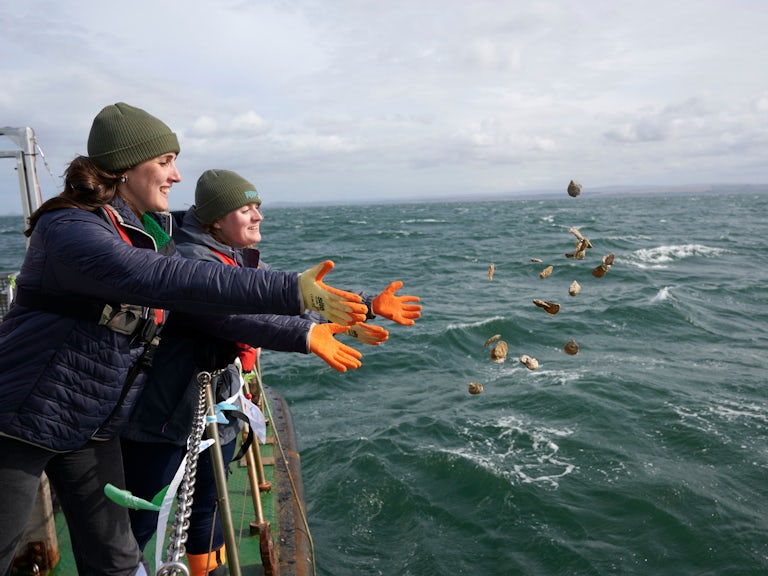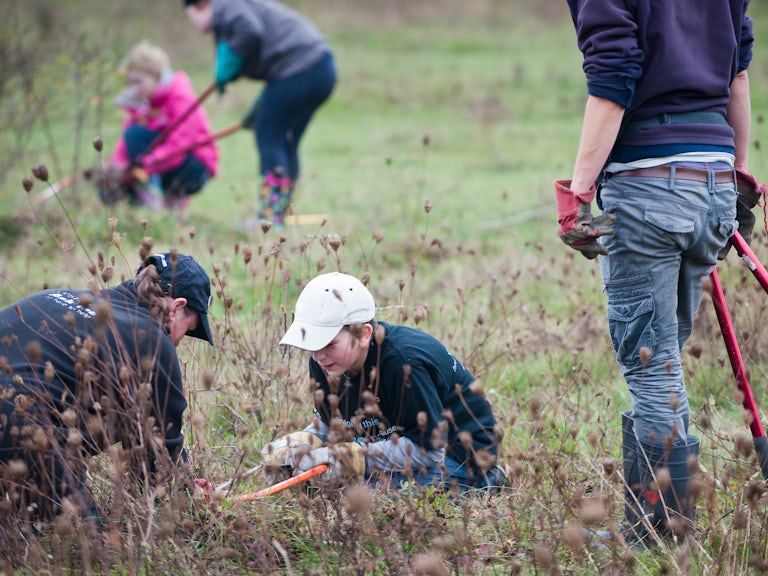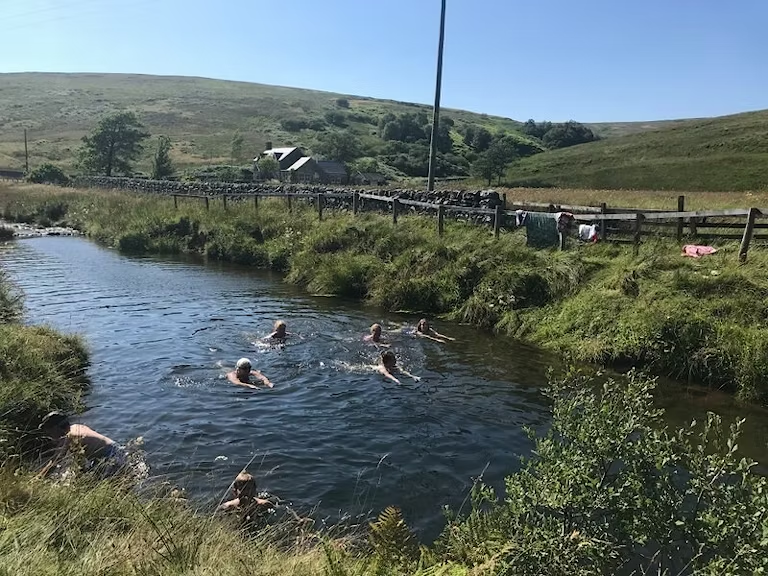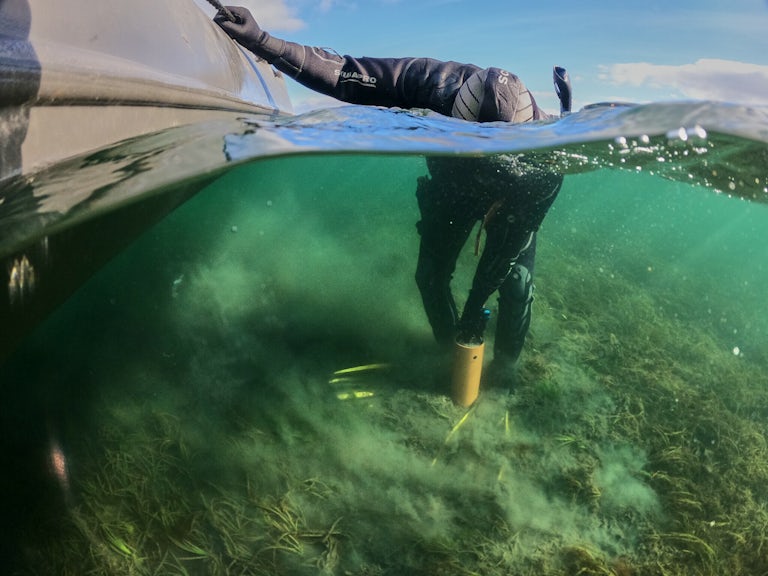Marine rewilding
It’s time to take the action needed to rewild and restore the incredible richness of ocean life.

Introduction
Britain’s seas used to be home to the biggest creatures on the planet: blue, humpback, fin, sperm, bottlenose and sei whales. Our rich, soupy waters helped fuel a thriving, diverse ecosystem, attracting huge numbers of small fish, and in turn massive balls of herring and whiting, which would bring these ocean giants to our shores to feed.
Like the decline of large mammals on land, whales were hunted to near local extinction for their meat and oil. Alongside the decline of these very visible giants, all marine ecosystems are suffering. The UK has lost around 92% of its seagrass meadows [1], 95% of its native oyster reefs [2] and nearly all its kelp in regions like Sussex where it once was abundant.
There is a way we can, once again, experience the wonder of flourishing marine life. Rewilding offers our seas a sustainable, biodiverse future as well as delivering tangible benefits for communities and mitigating and adapting to the effects of the climate crisis.
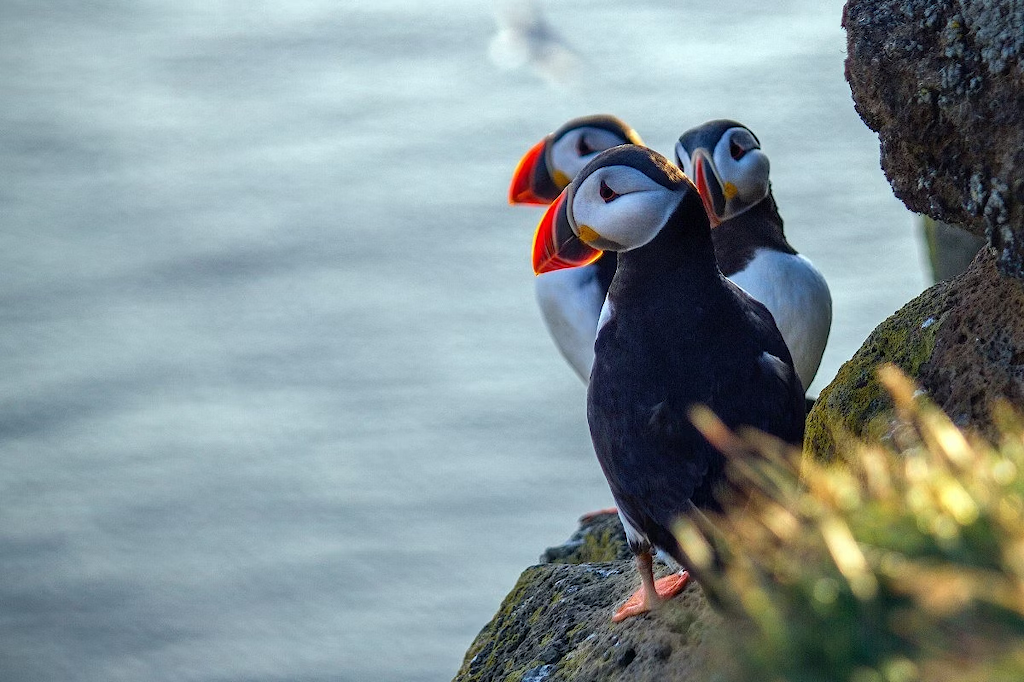
The de-wilding of our seas: key impacts
- Unsustainable fishing practise such as bottom trawling and dredging
- Poorly planned marine developments
- Pollution, including from plastic and sewage
- Climate change and ocean acidification
How marine rewilding works
We have a vision for how marine rewilding can take a full ecosystem approach to restore the swirling, whirling rainbow of sealife to our coasts once again. This means marine protection and restoration benefiting nature and people as a whole.
In practice, this can take the form of:
Active interventions
In other words — putting nature back where it can’t help itself. Some British marine species and habitats, like native oysters and seagrass meadows, have been so badly decimated that we’ve created underwater deserts with little hope of recovery alone. As with white storks or beavers on land, we can return lost species in our waters. Many of these interventions are being led by and for communities, as has already been shown in Scotland in Arran and Argyll.
Passive interventions
Where marine life is allowed to recover by removing pressures such as bottom trawling. This delivers many benefits from the seabed to surface and beyond, from better storage of carbon in undisturbed marine sediment to better fish yields overall by allowing fish nurseries to recover. Key to reducing impact is getting UK and devolved governments to support a ‘just transition’ for fishers to move away from destructive practices, instead enabling small-scale sustainable practices.
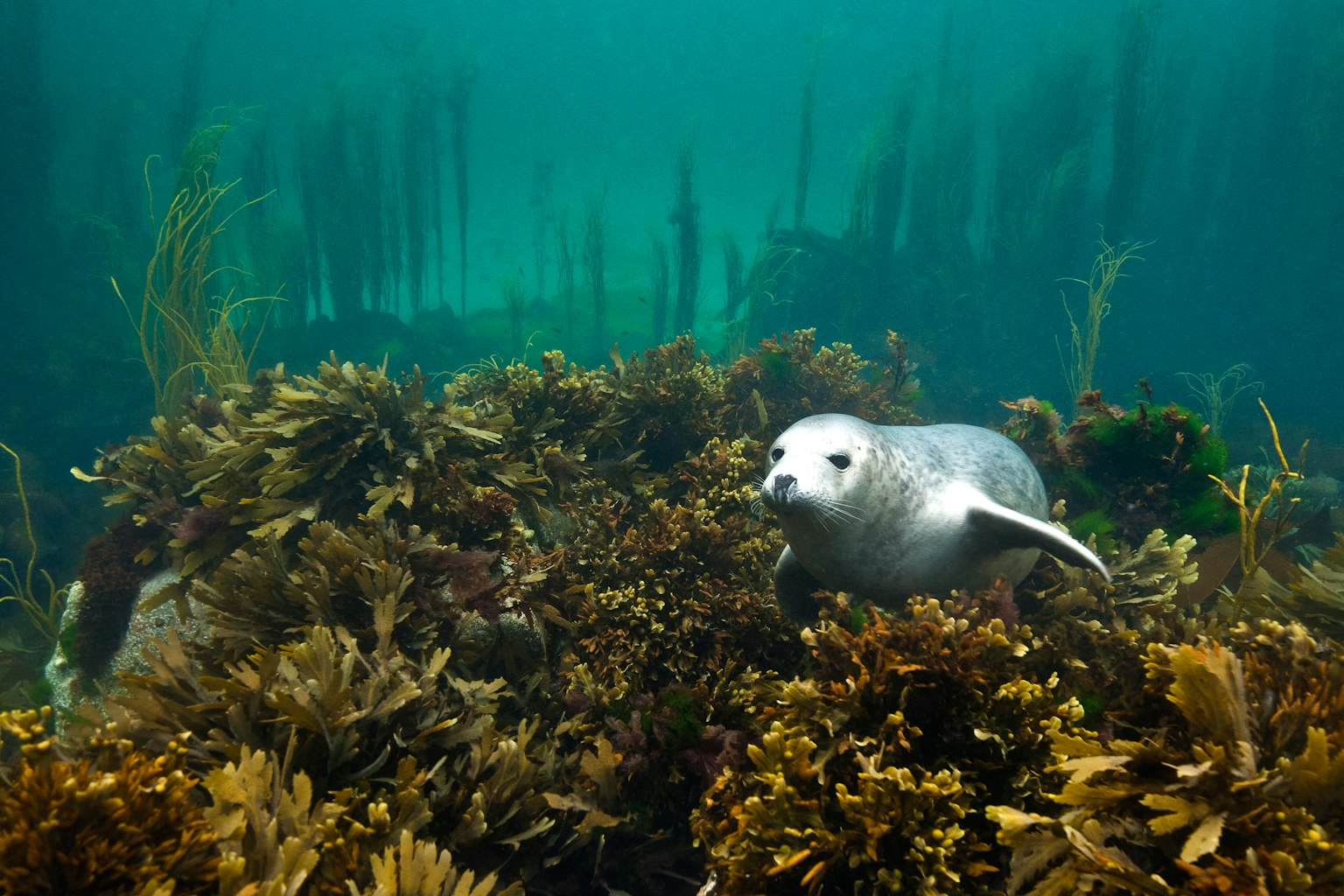
Current protections in MPAs aren’t working hard enough. Our new model for marine rewilding would initially allow for two different classes of protected areas in 30% of marine areas:
10% ‘core rewilding areas’
These would have the highest protections, allowing a diverse mosaic of habitats to fully recover. We’d see native kelp forests, seagrass meadows, living reefs and fully-functioning marine environments linking through to coastal saltmarshes, wetlands and terrestrial rewilding habitats. These will be the engine powering the rewilding of our wilder seas.
20% ‘semi-wild areas’
These larger scale designations would reach across at least 20% of Britain’s seas connecting the core areas, where a broader mosaic of marine activity such as recreational fishing, low-impact harvesting and nature-based tourism could take place.
Both areas would exclude bottom-trawling and dredging completely.
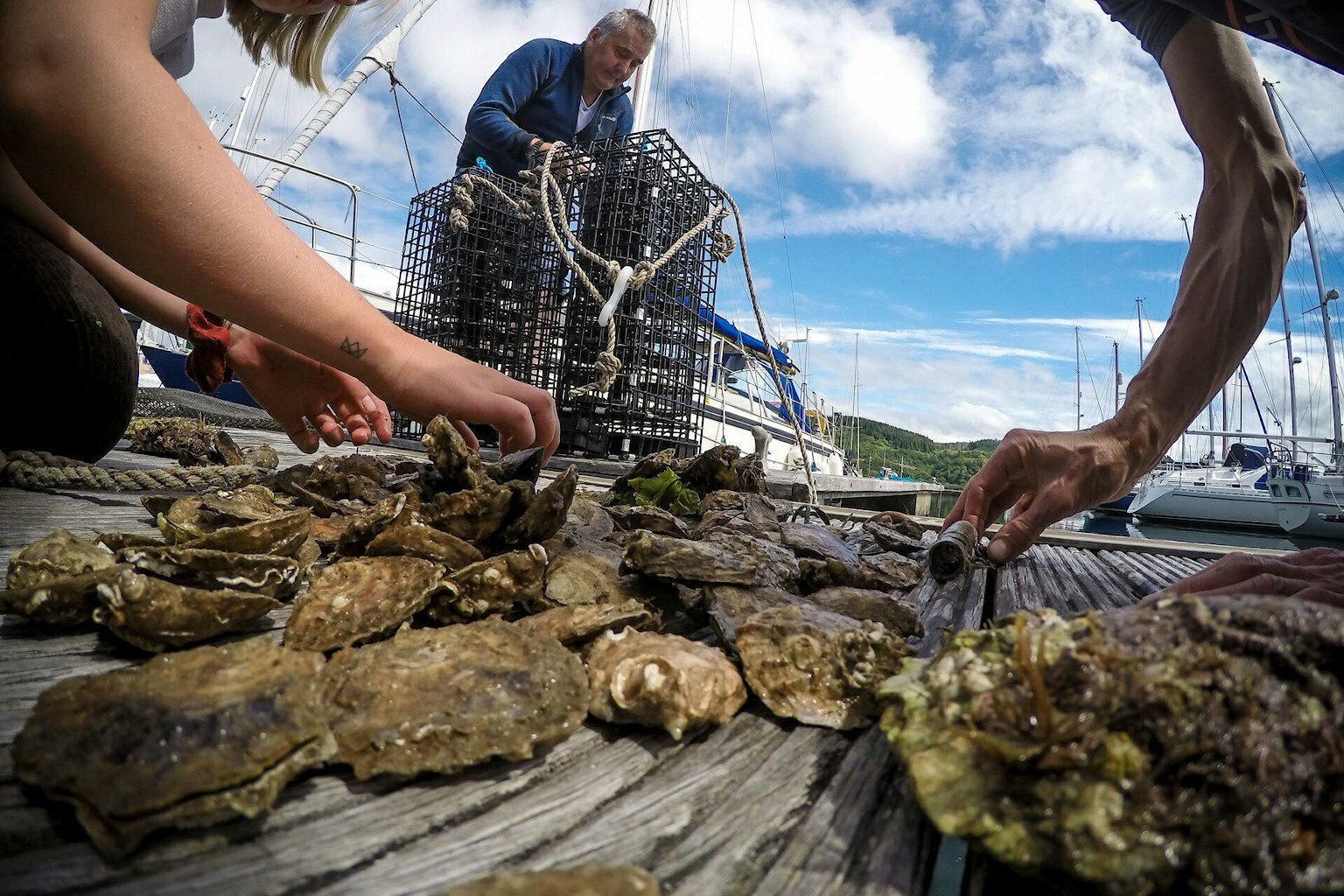
Working at a seascape-scale
We want to see 30% of our seas restored for nature by 2030. To do this, marine rewilding must work at a seascape-scale – not just looking at specific habitats or species, but at ecosystems as a whole, restoring the natural processes and species interactions that enable our ocean to function. This is even more important in an ocean environment, which doesn’t have the same physical barriers as on land.
It’s not just about what we can do for nature, but what nature can do for us. From restoring ecosystems so that small-scale, sustainable local fishers who’ve been displaced by super trawlers can once again prosper to protecting those areas most vulnerable to the effects of the climate crisis, marine rewilding must have people at its heart.
Marine rewilding projects
There are now a wide range of projects leading the way and creating beacons of hope along our coastline through rewilding.
Oyster regeneration projects are being enthusiastically undertaken in the Dornoch Firth, Loch Craignish in Argyll, Essex and the Solent, while projects restoring seagrass meadows and kelp forest are seeing signs of recovery. Lamlash Bay in Arran, home to one of the largest maerl beds in Scotland, has pioneered a 2.67 km² coastal led no-take zone within its wider 280 km² no-trawl reserve with spectacular results. While the Sussex Kelp project is already seeing early signs of fish populations recovering after banning trawling – and this is just the beginning.
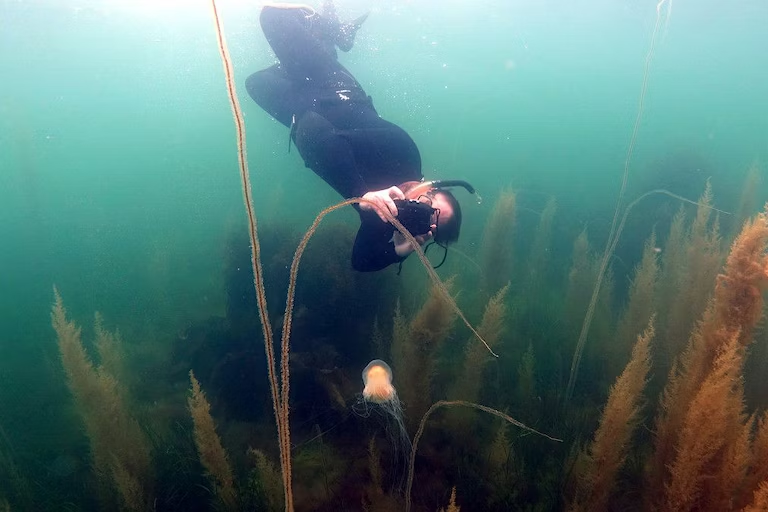
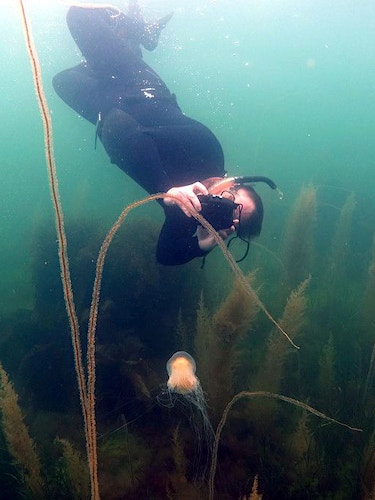
Five Marine rewilding projects around britain
Discover the projects working to reverse years of destruction.
Marine rewilding — the benefits
- British marine wildlife will be able to recover, including cetaceans, seabirds and other highly mobile species that are best helped by improving the connected seascape
- Thriving kelp forests, seagrass beds and oyster reefs can act as a buffer for ocean storms, offering much needed protection against coastal erosion, flooding and helping adapt to the impacts of climate change
- Oyster regeneration and other sustainable businesses can provide a source of income for coastal communities
- The incredible recovery of fish populations in protected areas will spill over into fishing areas, resulting in larger and more sustainable yields for fishing boats
- Marine vegetated habitats are effective at capturing carbon while sediment habitats on the seafloor are an incredible at storing said carbon, but only if protected from damaging human activity which releases the locked up carbon
- Local communities can enjoy the improved mental and physical health benefits that come from healthy seas as well as opportunities for green tourism
How we’re helping our seas to recover
At Rewilding Britain, we’re supporting bold action to enable and encourage the large-scale restoration of nature – from estuaries to kelp forests, oyster reefs to seas – to the point where nature can take care of itself.
We’re excited to be working with coastal communities, NGOs, sea users and governments to ensure that rewilding the seas that surround our islands doesn’t get left behind in policy and practice. Here’s how we’re doing it:
Growing the marine rewilding network
We’re developing and growing the Rewilding Network, supporting an increasing number of community-led marine projects to work at a seascape-scale and finance them through our Innovation and Challenge Funds. Through the Network we’re also connecting practitioners around the British coastline so they may develop and share best practice that benefits their communities.
Campaigning on key issues
Working across three nations, we’re campaigning on key issues blocking marine protection and restoration such as banning off-shore drilling, reducing pollution, more coherent marine spatial planning and a just transition to climate and nature-friendly fishing practices. We’re also working to raise the profile of marine rewilding and get it embedded in legislation. Read our Wilder Seas Report, a blueprint for restoring our marine environment and empowering our coastal communities published with the Marine Conservation Society in June 2025.
Unlocking opportunities for communities
Britain is a nation of islands and our seas have played an important role in the lives of our communities for centuries, and still do today. We’re championing the benefits of marine rewilding that can help improve all coastal life, reconnecting coastal communities to their most precious resource: a healthy sea. Crucially, any decisions must be made alongside, rather than for, communities.
[1] Research: Seagrass meadows shrank by 92% in UK waters - restoring them could absorb carbon emissions, UCL
[2] Native oyster populations have declined by 95% in the UK since the mid 19th century, Native Oyster Network
[3] Only 13% of the ocean is still 'wild', Current Biology
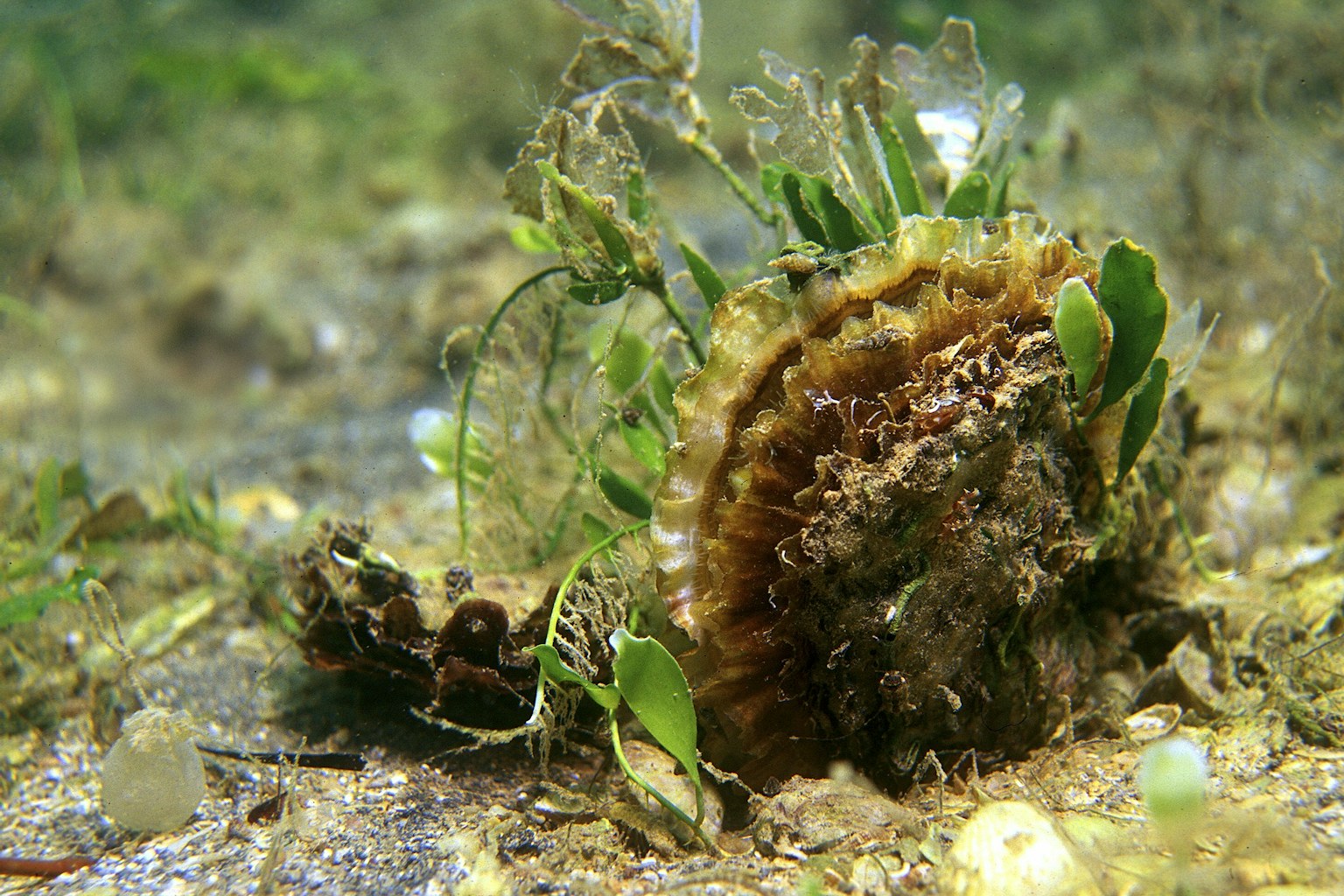
Funding marine rewilding
A project aiming to restore native oyster reefs and seagrass meadows in the Medway and Swale Estuary, Kent, has been awarded in the latest round of the Rewilding Innovation Fund.
Dive into the full list of recipients awarded since 2021 to see the diverse range of rewilding projects taking action across Britain’s land and sea.
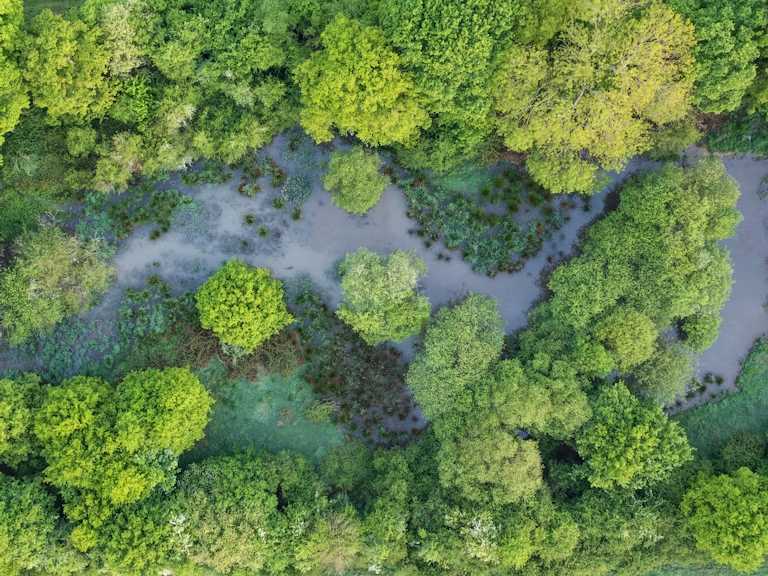
Explore our Rewilding Manifesto
We need UK Government to Think Big and Act Wild for nature, people and planet.
Learn more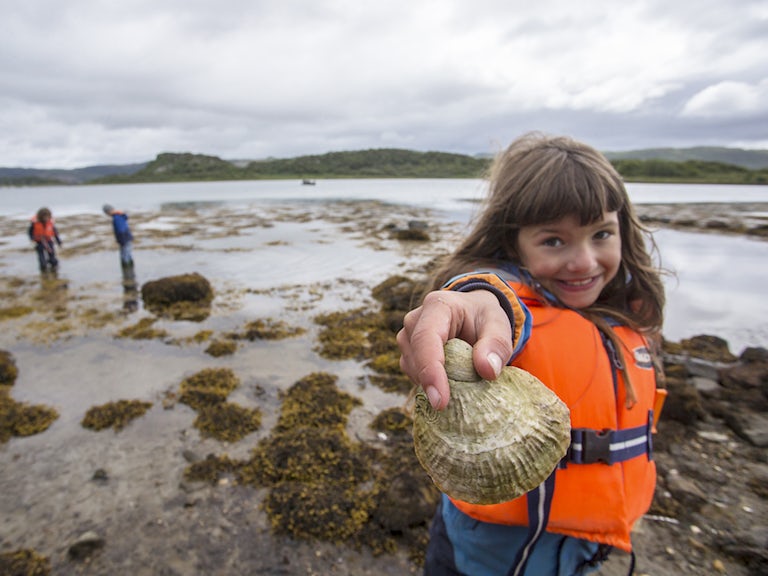
Our vision
We have big ambitions. Find out what we’ve set out to achieve through rewilding.
Our 2025-2030 strategy
